GRIT Week: MBA students get hands-on experience in real time
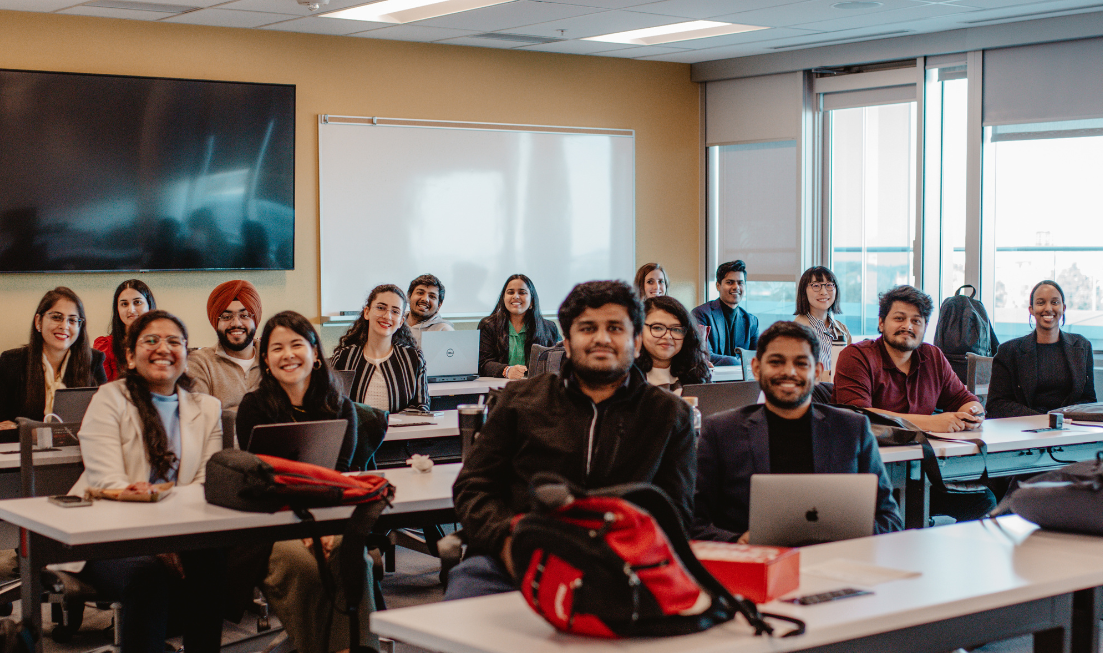
More than 150 MBA students participated in the four-day, immersive case experience, working together to address a complex real-world challenge.
Four days. A zombie apocalypse icebreaker. An introduction to nuclear energy and industry. A crisis simulation, a case study and a range of pragmatic solutions to a pressing global challenge.
Welcome to the DeGroote MBA program’s first GRIT Week.
Generating Resilient Integrative Thinkers Week, or GRIT Week, is a four-day, immersive case experience in which more than 150 first-year MBA students put their early weeks of learning and their strategic thinking skills to test in real time as they teamed up to address a complex real-world problem from every angle.
With daily hands-on exercises, GRIT Week empowered students to explore ideas and attempt new things — and sometimes fail, and learn from it — so they’re better equipped to meet challenges in their future careers.
The DeGroote School of Business partnered with McMaster Nuclear Operations and Facilities (MNOF) on the programming for the inaugural GRIT Week, which focused on exploring nuclear science as a viable option to address the urgent need for sustainable and renewable energy.
Over the course of the week, student teams immersed themselves in understanding the nuclear industry, developing and presenting a deployment plan for a Small Modular Reactor (SMR), and formulating business solutions to increase SMR adoption as part of Canada’s clean energy strategy.
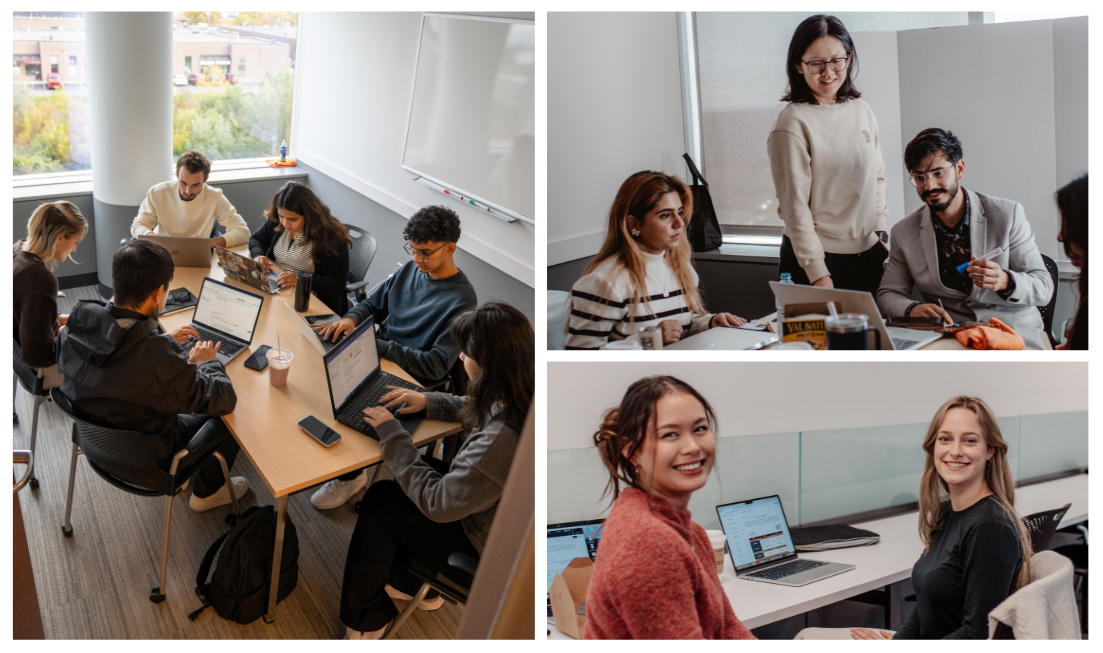
They had to work quickly and collaboratively with their peers and mentors to meet tight deadlines, and effectively share their ideas in elevator pitches as well as at a trade show.
At one point, mock protesters charged in and disrupted their work, leading into a session on crisis response management, where they learned about navigating an unexpected crisis and its aftermath.
Here are some highlights from the week
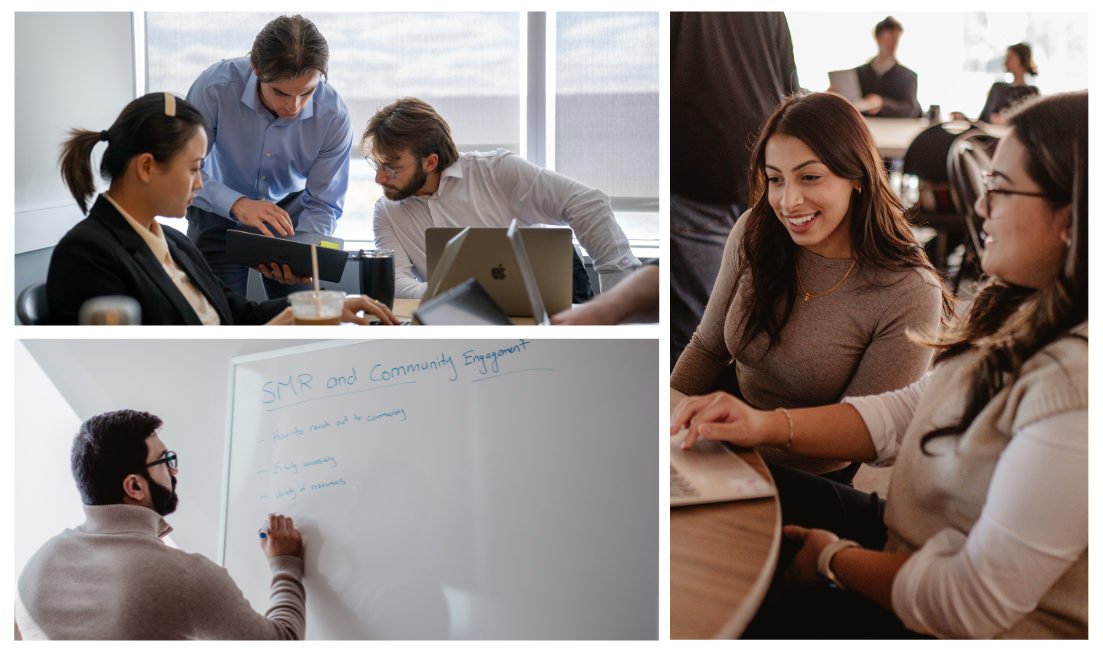
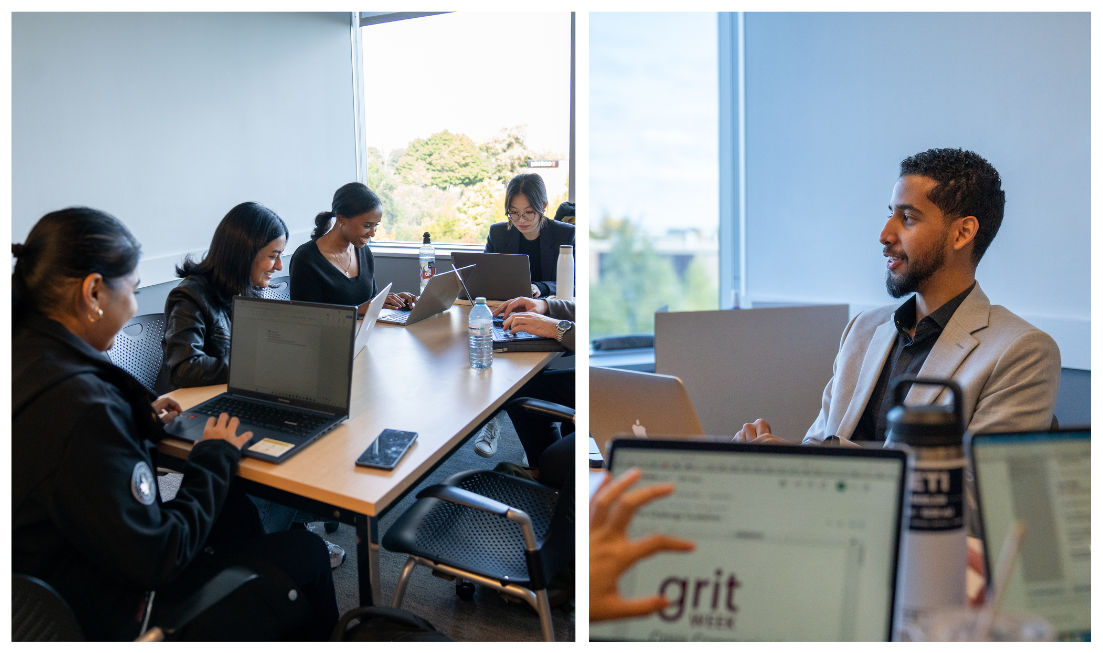
“We put students in groups with people they hadn’t worked with before. They had to get to know their team members quickly, they had to trust them,” says Professor Milena Head, academic director of the EMBA program.
“At the beginning of the week they saw this as an impossible task, but in a short amount of time realized they can do it.”
“We are so proud of them, of how much they’ve been able to do and how resilient they were. They lived up to everything that GRIT stands for.” — Milena Head, professor and academic director of the EMBA program
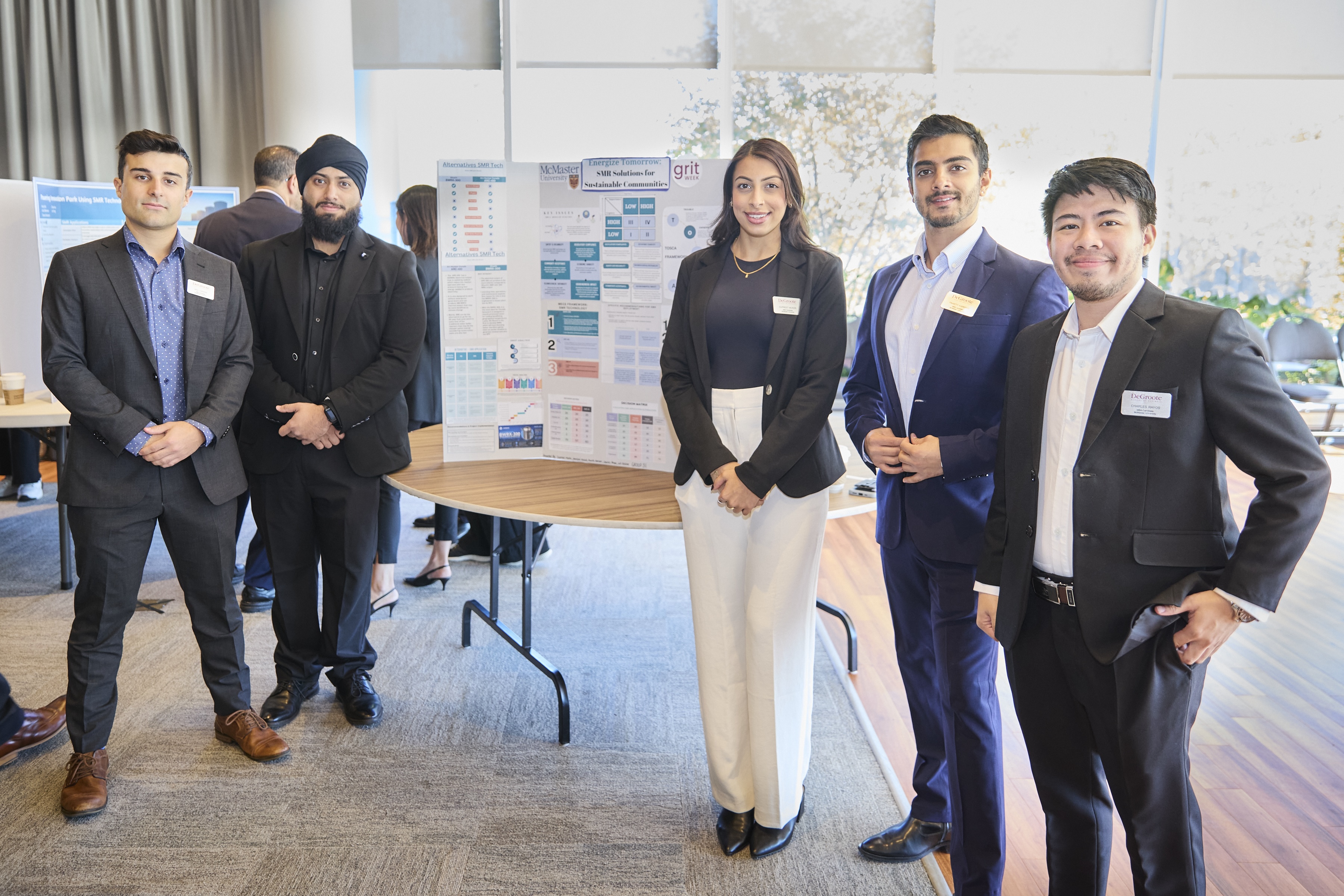
“This experience was as challenging as it was rewarding! My team, Group 31, was exceptional! Everyone worked early mornings and late nights while showing unwavering dedication. I’m truly grateful to have collaborated with such a dynamic group and proud of all we achieved together!” —Amritpal Kallah, MBA student
Going in, hardly any of the students knew much about nuclear science. But over the course of the week, they learned about the sector, evaluated opportunities for SMRs at the McMaster campus and developed deployment plans.
McMaster’s leadership in nuclear research and the partnership with McMaster Nuclear Operations and Facilities offered students a unique experience, says DeGroote professor Goran Calic, director of MBA programs.
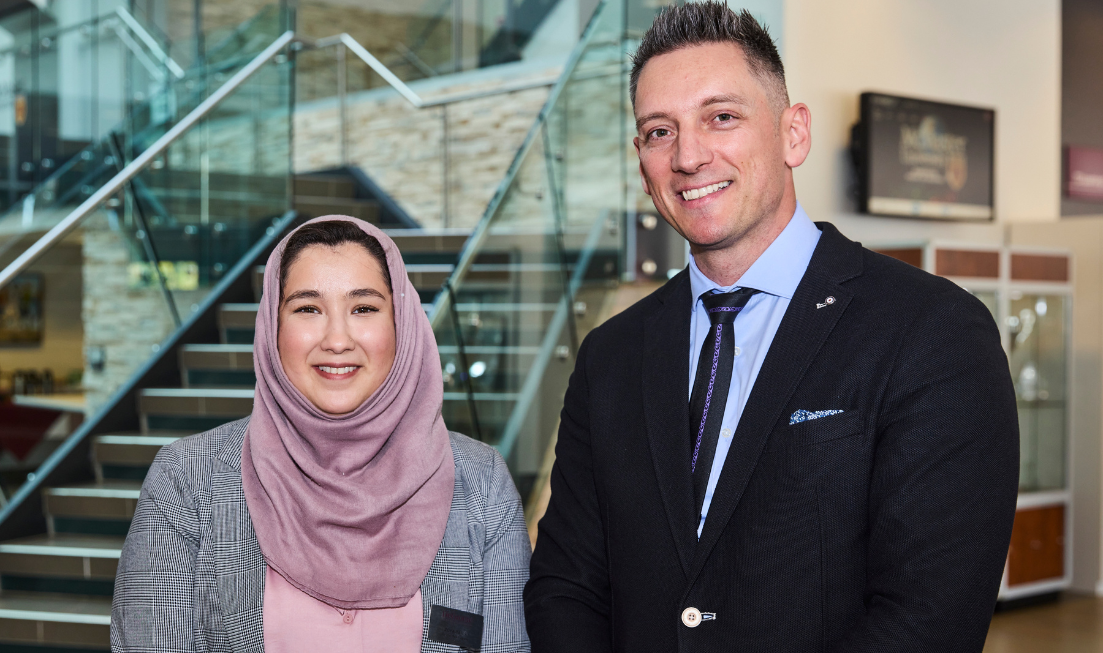
“McMaster was the first university in the commonwealth to have a nuclear reactor. They provide a lot of very important medicine, innovation and startups at the nuclear reactor. So it would be a big missed opportunity if we didn’t work with nuclear and leverage their experience, their expertise, their knowledge, and even the industry opportunities.”
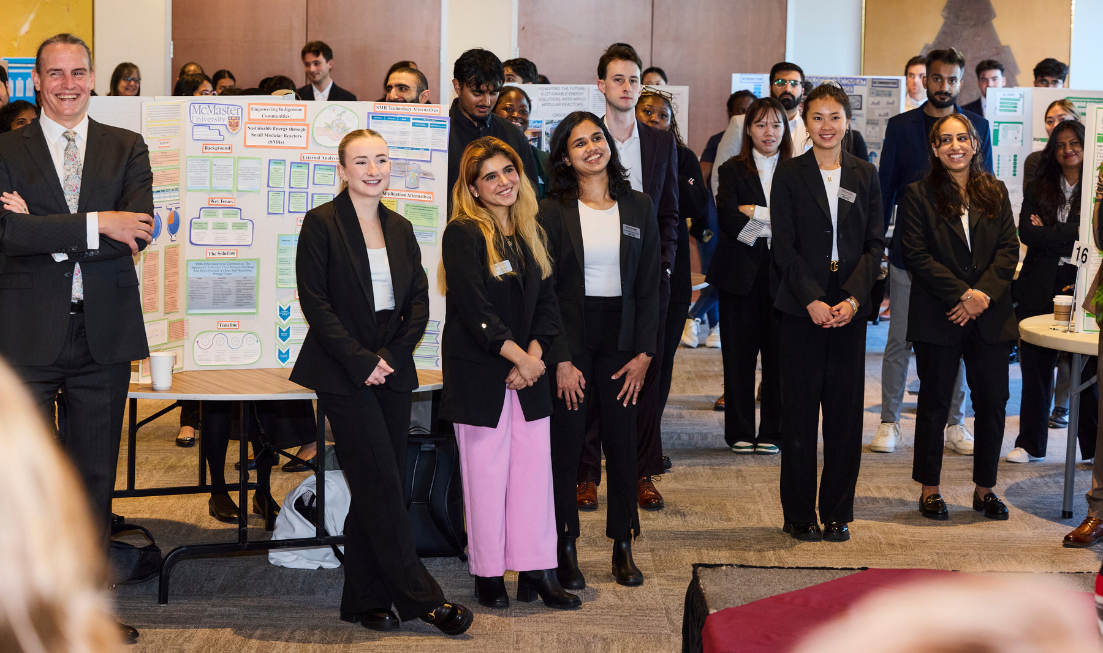
As the global need for reliable clean energy sources grows more urgent, public awareness and perception around nuclear energy is especially relevant, says Erica Dao, manager of nuclear education and outreach at McMaster, who presented the live case at GRIT Week, leading into a workshop.
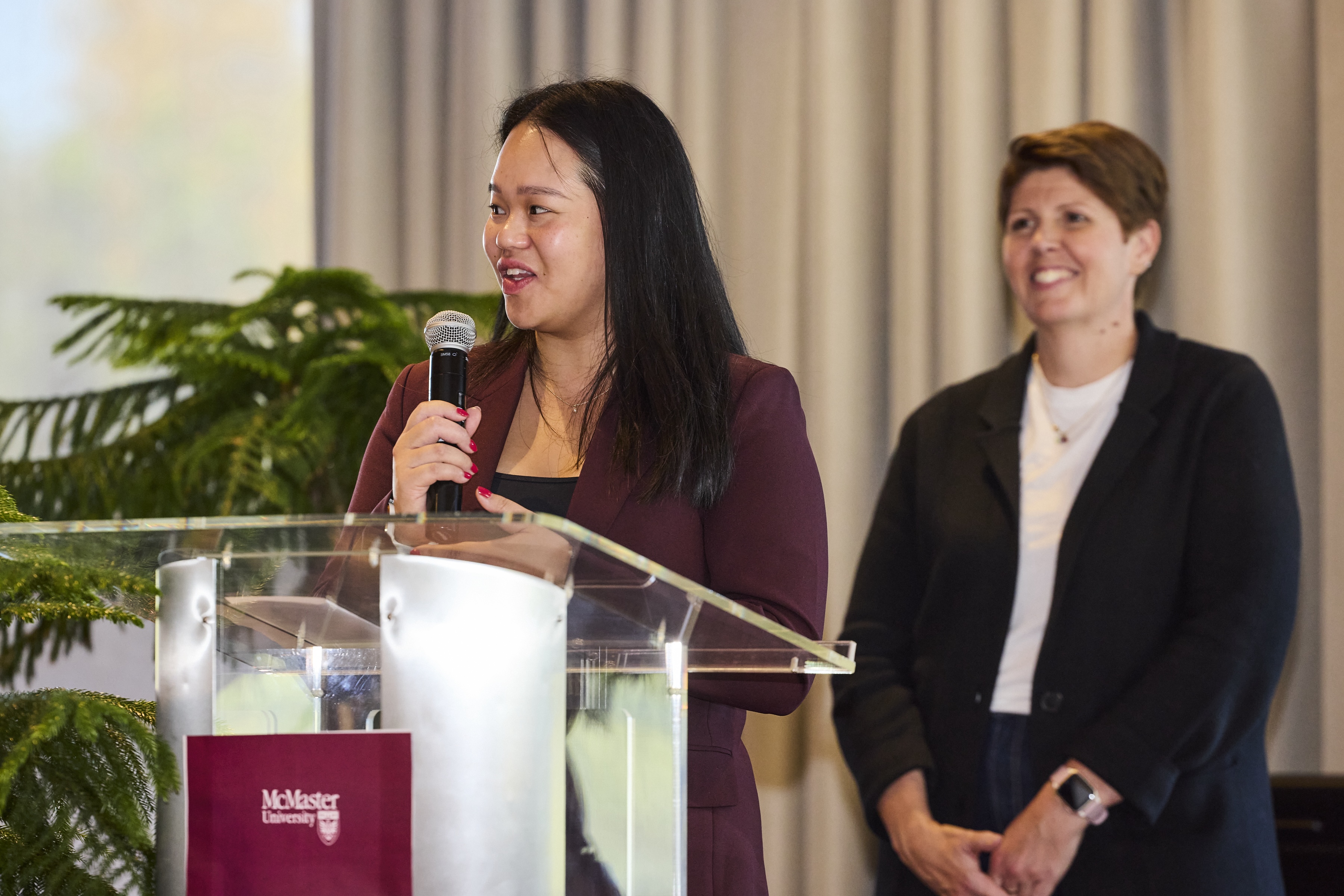
“Despite countless technological advancements that have only made nuclear technologies safer and more efficient over the years, nuclear misinformation still proliferates around the world today,” says Dao.
GRIT Week also offered many opportunities for hands-on learning, including a mock protest that interrupted a regular lecture.
“This protest may have been fake, but it represents a real concern for nuclear research and industry leaders who are doing important work that has the power to revolutionize the clean energy transition,” Dao says.
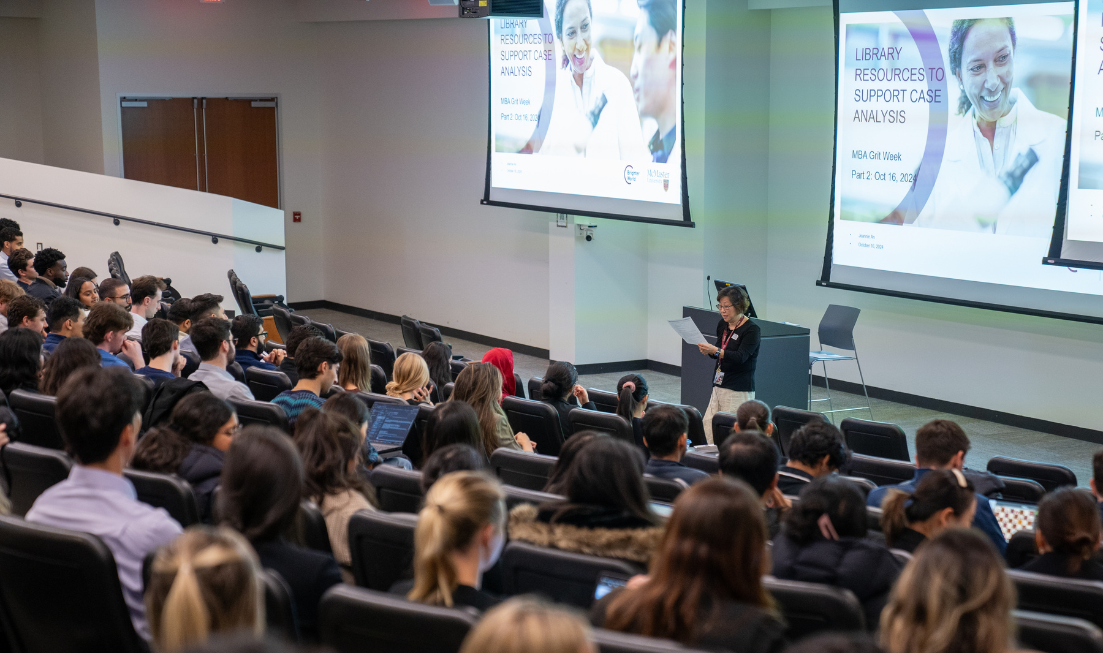
“This exercise allowed our students to realize that leadership requires communication, and that it is important to keep in mind the needs of the audience they are communicating with,” says Paul Snowdon, assistant professor of Strategic Management at the DeGroote School of Business.
“This scenario not only provided a low-risk environment for students to practice crisis communication and leadership skills, but also deepened their understanding that any crisis, large or small, needs to be managed. And that ultimately, how they manage a crisis will strongly influence how they are perceived as a leader.”
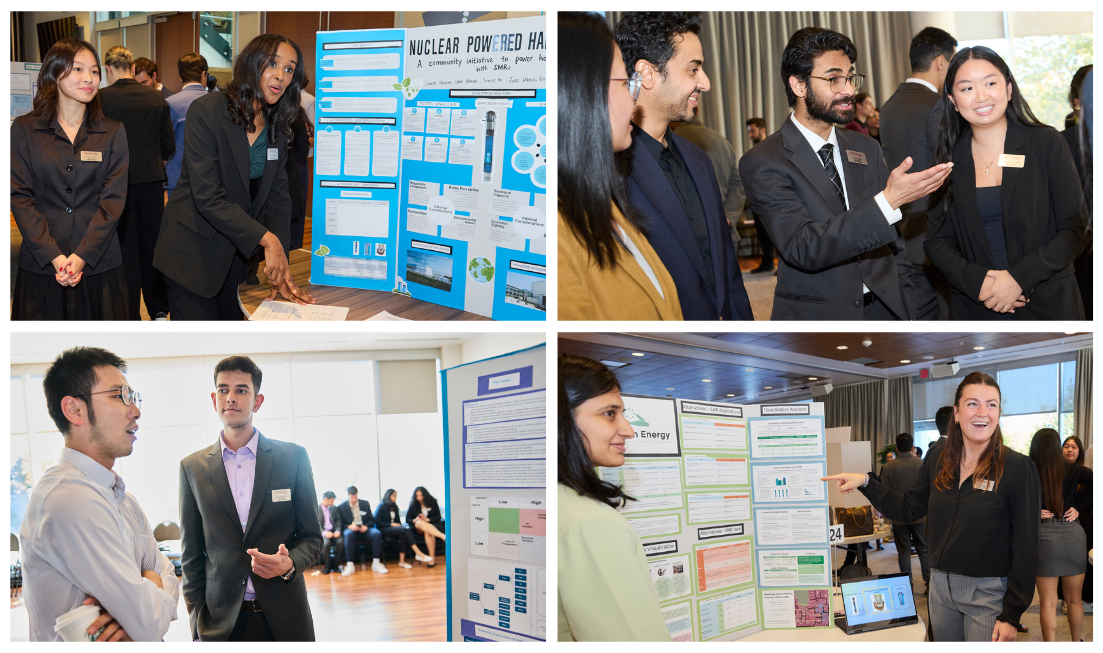
“We are looking for our students to practise resiliency. So approaching challenges with curiosity and an open mind and being able to recover from unexpected changes,” says Amy Pachai, educational developer at DeGroote’s Teaching and Learning Services.
Another learning outcome is integrative thinking — ensuring students are able to consider how a single case applies to their different course areas.
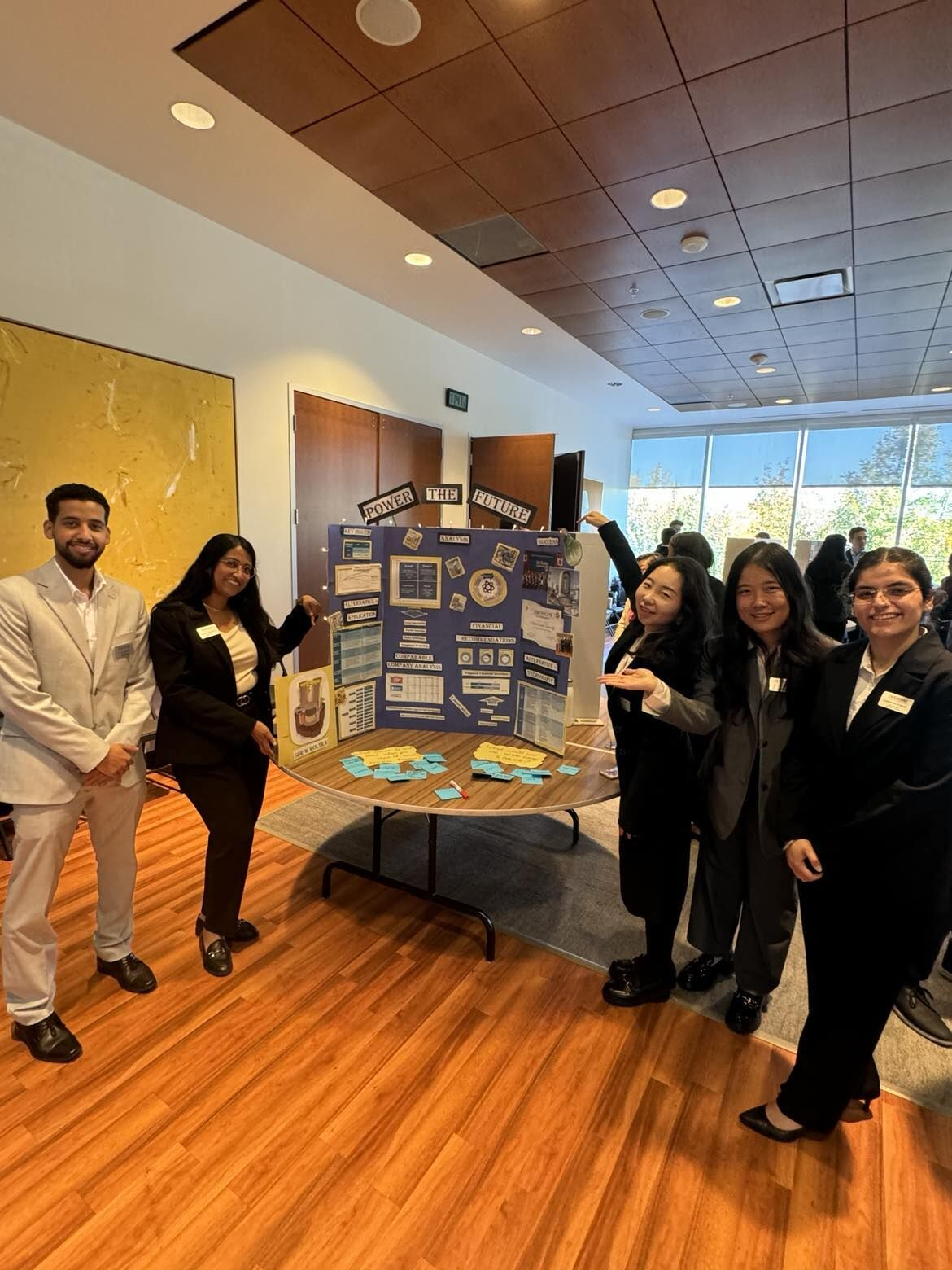
“This year’s GRIT Week on SMR and nuclear energy provided an impactful learning experience, focusing on a field that is shaping the future of energy. There is no doubt that nuclear energy is paving the way for sustainable power sources, as companies like Amazon, Microsoft, and Google embrace the development of new nuclear technologies. Throughout this intensive week, I not only learned about nuclear energy’s future but also experienced significant personal growth, embodying the spirit of GRIT – Generating Resilient Integrative Thinkers.” — Prasha Sivasundaram, MBA student
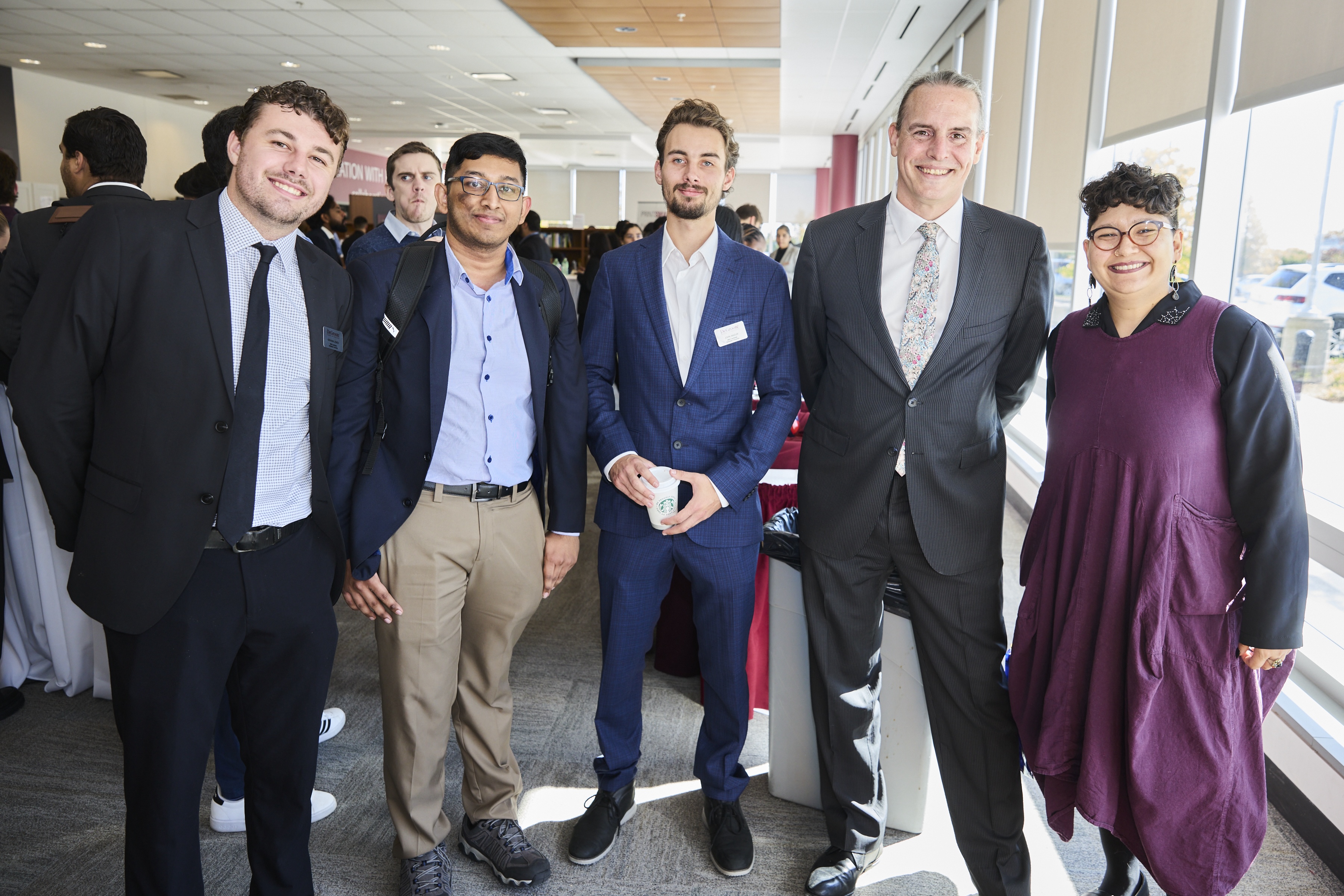
“This week has proven, if you just look around, that our students will tackle the challenge and create some really awesome and creative solutions,” says Calic
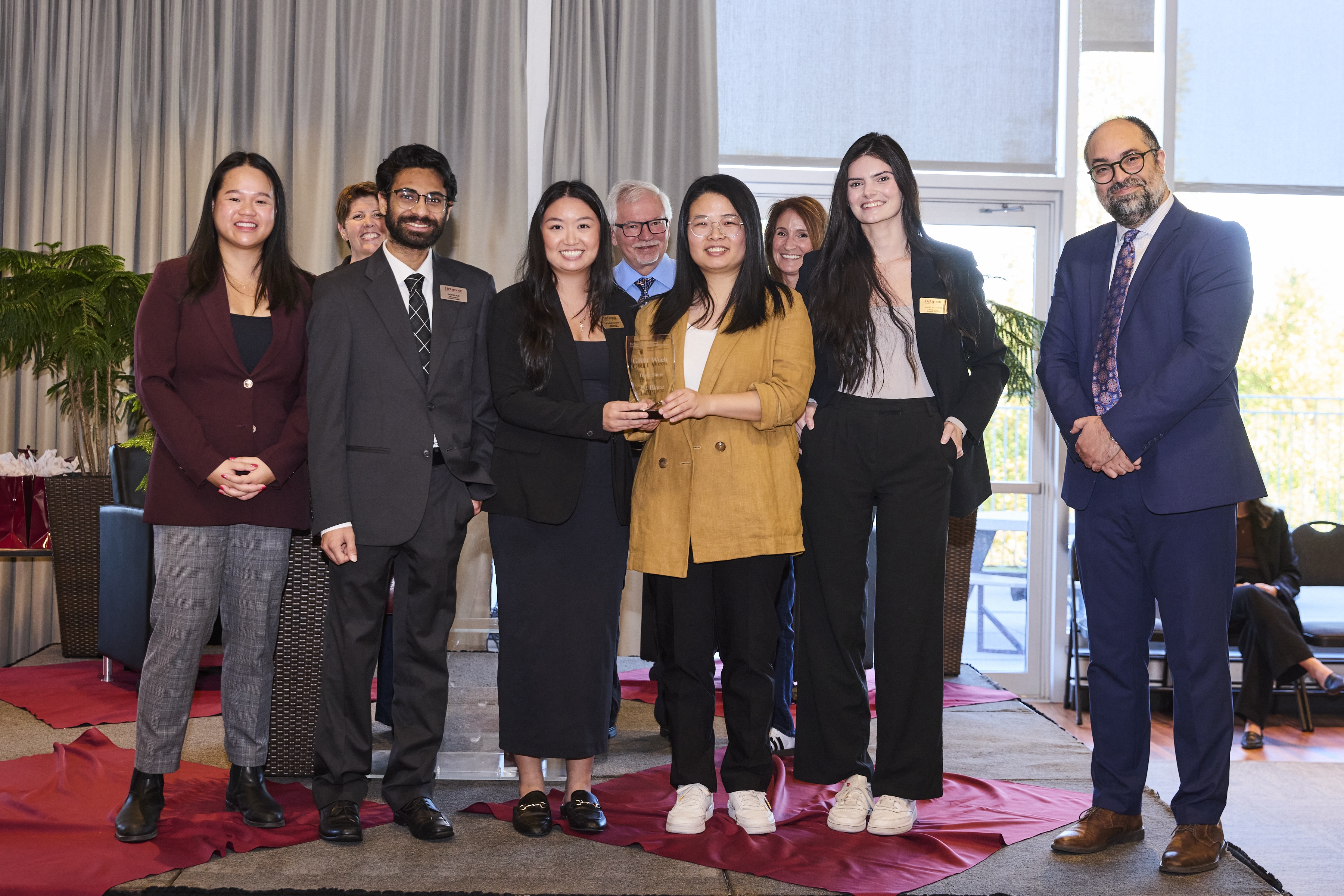
“In addition to the live case, GRIT Week pushed us to tackle high-pressure, time-sensitive challenges that tested our problem-solving, adaptability, and teamwork skills. It was truly a rewarding experience that sharpened my ability to think strategically in complex situations.” — Monique Nguyen, part of the team that came No. 1 in the trade show.

